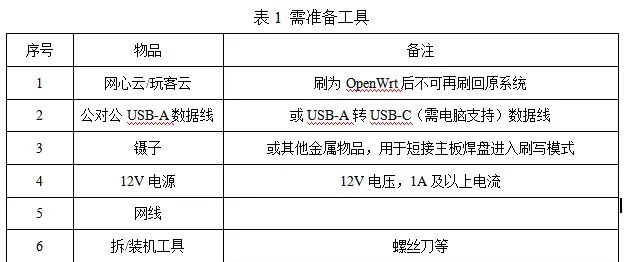本篇文章主要是部署tomcat 应用,3副本,切实感受一些service 负载均衡。
1、创建命名空间tomcat-test
kubectl create namespace tomcat-test2、配置tomcat-configmap.yaml
# cat tomcat-configmap.yaml
apiVersion: v1
kind: ConfigMap
metadata:
name: tomcat-config
namespace: tomcat-test
data:
server.xml: |
<?xml version="1.0" encoding="UTF-8"?>
<Server port="8005" shutdown="SHUTDOWN">
<Listener className="org.apache.catalina.startup.VersionLoggerListener" />
<Listener className="org.apache.catalina.core.AprLifecycleListener" SSLEngine="on" />
<Listener className="org.apache.catalina.core.JreMemoryLeakPreventionListener" />
<Listener className="org.apache.catalina.mbeans.GlobalResourcesLifecycleListener" />
<Listener className="org.apache.catalina.core.ThreadLocalLeakPreventionListener" />
<GlobalNamingResources>
<Resource name="UserDatabase" auth="Container"
type="org.apache.catalina.UserDatabase"
description="User database that can be updated and saved"
factory="org.apache.catalina.users.MemoryUserDatabaseFactory"
pathname="conf/tomcat-users.xml" />
</GlobalNamingResources>
<Service name="Catalina">
<Connector port="8080" protocol="HTTP/1.1"
connectionTimeout="20000"
redirectPort="8443" />
<Connector port="8009" protocol="AJP/1.3" redirectPort="8443" />
<Engine name="Catalina" defaultHost="localhost">
<Realm className="org.apache.catalina.realm.LockOutRealm">
<Realm className="org.apache.catalina.realm.UserDatabaseRealm"
resourceName="UserDatabase"/>
</Realm>
<Host name="localhost" appBase="webapps"
unpackWARs="true" autoDeploy="true">
<Valve className="org.apache.catalina.valves.AccessLogValve" directory="logs"
prefix="localhost_access_log" suffix=".txt"
pattern="%h %l %u %t "%r" %s %b" />
</Host>
</Engine>
</Service>
</Server>3、创建文件tomcat-pvc.yaml
apiVersion: v1
kind: PersistentVolumeClaim
metadata:
name: tomcat-pvc
namespace: tomcat-test
spec:
accessModes:
- ReadWriteOnce
storageClassName: nfs-client
resources:
requests:
storage: 10Gi4、创建文件tomcat-deployment.yaml
# cat tomcat-deployment.yaml
apiVersion: apps/v1
kind: Deployment
metadata:
name: tomcat-deployment
namespace: tomcat-test
labels:
app: tomcat
spec:
replicas: 3
selector:
matchLabels:
app: tomcat
template:
metadata:
labels:
app: tomcat
spec:
containers:
- name: tomcat
image: tomcat:9.0
ports:
- containerPort: 8080
env:
- name: JAVA_OPTS
value: "-Xms512m -Xmx1024m"
resources:
requests:
memory: "512Mi"
cpu: "250m"
limits:
memory: "1Gi"
cpu: "500m"
volumeMounts:
- name: tomcat-config
mountPath: /usr/local/tomcat/conf/server.xml
subPath: server.xml
- name: tomcat-webapps
mountPath: /usr/local/tomcat/webapps
volumes:
- name: tomcat-config
configMap:
name: tomcat-config
- name: tomcat-webapps
persistentVolumeClaim:
claimName: tomcat-pvc5、创建配置文件tomcat-service.yaml
# cat tomcat-service.yaml
apiVersion: v1
kind: Service
metadata:
name: tomcat-service
namespace: tomcat-test
labels:
app: tomcat
spec:
type: NodePort
ports:
- port: 8080
targetPort: 8080
nodePort: 30001 # 可自定义NodePort范围(30000-32767)
selector:
app: tomcat6、创建文件tomcat-ingress.yaml
# cat tomcat-ingress.yaml
apiVersion: networking.k8s.io/v1
kind: Ingress
metadata:
name: tomcat-ingress
namespace: tomcat-test # 与 Tomcat 服务在同一命名空间
annotations:
# 配置 Ingress Controller 类型(以 NGINX 为例)
kubernetes.io/ingress.class: "nginx"
# 可选:启用 HTTPS 时添加(需提前准备证书)
# cert-manager.io/cluster-issuer: "letsencrypt-prod" # 若使用 cert-manager 自动签发证书
spec:
# 可选:配置 HTTPS(需提前创建 Secret 存储证书)
# tls:
# - hosts:
# - app2.czm.com
# secretName: tomcat-tls-secret # 存储证书的 Secret 名称
rules:
- host: app2.czm.com # 对外暴露的域名
http:
paths:
- path: / # 访问路径(/ 表明根路径)
pathType: Prefix # 路径匹配方式(Prefix 表明前缀匹配)
backend:
service:
name: tomcat-service # 关联的 Service 名称(需与前面创建的一致)
port:
number: 8080 # Service 的端口(与 Service 中定义的 port 一致)7、我这边pvc是通过nfs服务器构建的,可以查看前面文件,到nfs目录查看
其中index.jsp 功能主要是获取本地主机名、IP地址等,这样在浏览器访问的时候才知道是否实现了负载均衡。

8、域名通过绑定本地host,浏览器进行访问:



访问结果可以明显说明通过访问ingress 流量会分发到后端3个不同pod tomcat 容器。
© 版权声明
文章版权归作者所有,未经允许请勿转载。如内容涉嫌侵权,请在本页底部进入<联系我们>进行举报投诉!
THE END






















暂无评论内容